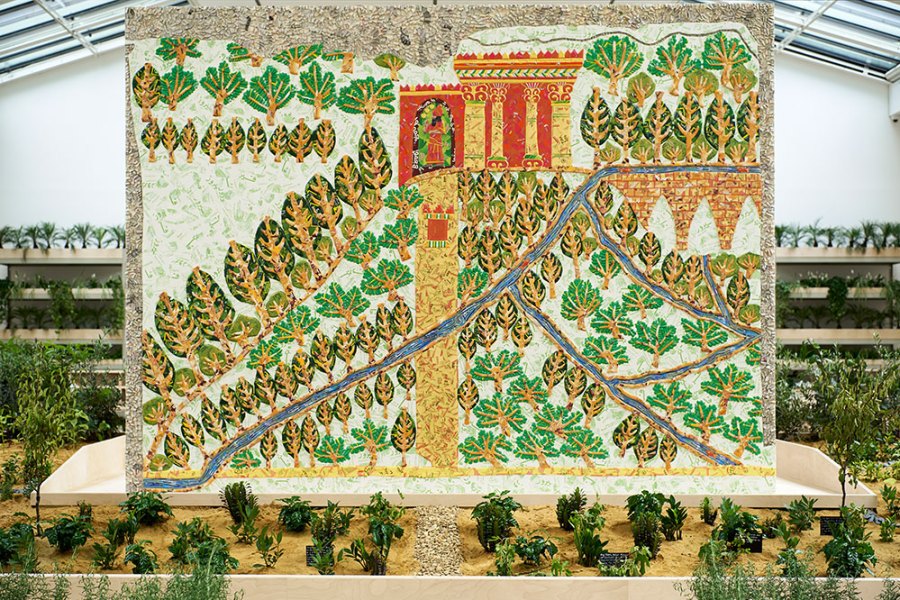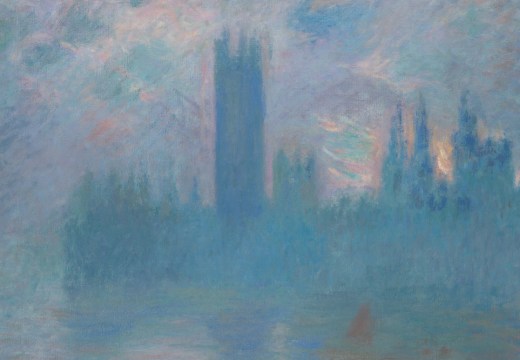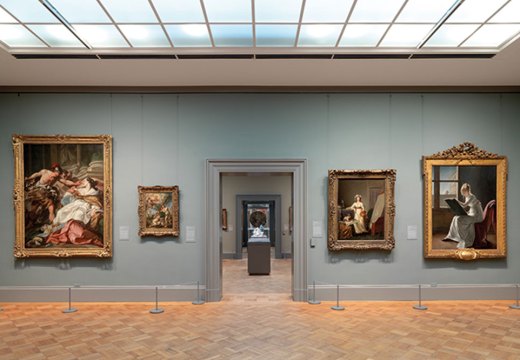How appropriate that an art gallery housed in the former Baltic Flour Mills should host foodstuffs once more, in the form of the herb, spice, fruit and grain plants featured in Michael Rakowitz’s current exhibition at this Tyneside landmark. Commissioned by the Baltic Centre in partnership with the Imperial War Museum’s 14-18 NOW Legacy Fund, ‘The Waiting Gardens of the North’ grows – in every sense – out of the artist’s and the gallery’s work with migrants in Gateshead and Newcastle. It marks the Baltic’s designation in 2022 as the first Gallery of Sanctuary in north-east England, as part of the City of Sanctuary UK movement aimed at welcoming refugees.
‘The Waiting Gardens’ is part of Rakowitz’s ongoing project ‘The Invisible Enemy Should Not Exist’, which he began in 2007 in response to the pillage of antiquities from the National Museum in Baghdad during the Iraq War. In 2019, he created an artwork of the same name for his Fourth Plinth commission in London’s Trafalgar Square: a recreation of an ancient Assyrian winged bull figure, known as a lamassu. In 1851, the arrival of two stone lamassu at the British Museum had been headline news. Acquiring antiquities marked the colonial presence of Western nations in the region, with its strategic routes for trade, troops and coaling stations.

Level four of the Baltic Centre functions like a greenhouse protecting living plants. Photo: John McKenzie; © 2023 Baltic
Born into an Iraqi Jewish family who sought refuge in the United States, Rakowitz is versed in archaeology and immigration and sensitive to how they have been tangled like ill-tended vines on the scaffolds of politics, prejudice and war. To create his ‘Waiting Garden’ at the Baltic, Rakowitz offers structures on a humane and human scale instead, crafted from plywood, banked with earth and papered with commercial food-wrappers sourced from local Asian, African and Middle Eastern shops. The visual centre of the exhibition is a large multi-coloured panel that recreates a stone relief in the British Museum, removed from modern-day Mosul in Iraq by British East India Company officer Sir Henry Rawlinson. The relief depicts a seventh-century BC garden created by King Ashurbanipal for his homesick wife, Queen Amytis, who came from Media in what is now Iran. In this precursor to the famous Hanging Gardens of Babylon, Ashurbanipal grew the plants for which she pined. It was ‘a garden to cure homesickness’, as Rakowitz puts it, which could describe this exhibition as well.
In front and around the recreated panel, four raised beds bring this ancient space to life on level four of the Baltic Centre, covering the soil with sand and laying lines of slate chips to represent irrigation channels. Gardeners from local National Trust properties (who consulted on the design) and members of the migrant communities involved will tend the plants over the coming months and harvest their leaves and berries. Plywood ziggurats – based on the ancient Babylonian temples – support hefty glass jars heaped with peppercorns, dried chillies, mustard and fennel seeds and allspice berries; rolls of cinnamon bark take pride of place on the upper platform. Mortars allow for milling demonstrations, scenting the air with spices, while from humble wooden racks nearby hang bunches of lavender, thyme and melissa, drying slowly under the grey skies of an English summer.

Jars filled with dried herbs and spices are placed on platforms in the installation. Photo: John McKenzie; © 2023 Baltic
Rakowitz spotted the potential of this level’s glass roof, which is usually covered to protect artworks on show. Here, it functions as a greenhouse to protect the plants instead, several of which – coffee, olives, grapes, African milk tree (euphorbia trigona), frost-tender amaranth – need shelter from the northern clime. Migrants who collaborated on the exhibition have identified specific plants and contributed personal stories, chalked by the artist on to small blackboard signs inserted in the beds. Quotes make their voices present: ‘We should be kind and positive like sunflowers’, says Zarifeh, from Iran, while her co-national Ali shares an image of a boat crossing black water to a brightly-coloured shore: ‘My voyage from a dark place to a better place.’
To garden is literally to put down roots and food is a common denominator that brings people together, a literal taste of home. At the back of the gallery, a cooking area, benches and picnic tables create a sociable space, with videos to watch and books to browse. An events programme includes cooking and tincture-making demonstrations and, in September, an in-conversation with the artist. This summer, weekly walks explore the colonial history of the Gateshead and Newcastle quays. Ships built on the Tyne carried the region’s coal, steel and iron throughout the British Empire. Like other former imperial powers, the United Kingdom is only beginning to reckon with the myriad ways its extraction of resources, plants and products caught – and still catches – human beings in its wake.

Stories and statements from migrants are chalked on to blackboards placed among the plants. Photo: John McKenzie; © 2023 Baltic
On the damp Saturday I visited, the gallery was full of visitors from a range of age and ethnic groups. They observed, touched and smelled the plants, taking time to identify those they recognised and stop at the food-focused stations. The exhibition will encourage repeat visits (admission is free) to witness how the garden changes over the coming months. But as with all of Rakowitz’s work, there is a sharp and well-informed critique beneath the aesthetic arrangement and crowd-pleasing effect. Pots of rosemary, the memory herb, wait on metal trolleys for their turn in the planting beds – and with an estimated 2,420 people dead or missing on Mediterranean crossings so far this year, rosemary surely calls us to stop, remember and reflect, in this garden with humanity and healing at its core.
‘Michael Rakowitz: The Waiting Gardens of the North’ is at the Baltic Centre for Contemporary Art, Gateshead until 26 May 2024.
Unlimited access from just $16 every 3 months
Subscribe to get unlimited and exclusive access to the top art stories, interviews and exhibition reviews.














![Masterpiece [Re]discovery 2022. Photo: Ben Fisher Photography, courtesy of Masterpiece London](http://www.apollo-magazine.com/wp-content/uploads/2022/07/MPL2022_4263.jpg)
It’s time for the government of London to return to its rightful home